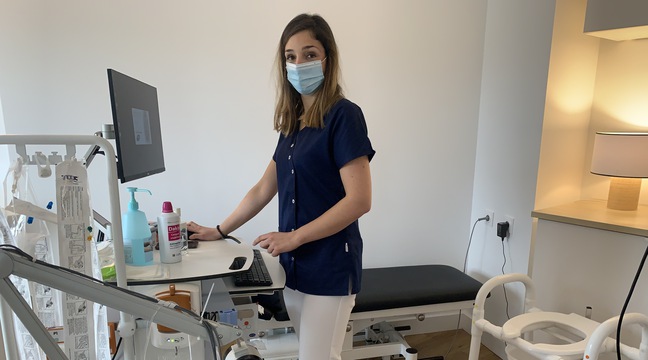At the Maison du périnée in Strasbourg, we won’t tell you about mountain equipment. Nothing to do with “the chain of the Pyrenees” jokes the doctor Chloé Blum evoking a journalistic micro-sidewalk where men questioned on the perineum often spoke of the mountain, in the South. No, here, we talk and deal very seriously with three areas that are still taboo, namely urinary, fecal and sexual disorders directly related to this group of muscles that form the pelvic floor.
It’s not always easy to talk about urinary or anal leakage, an erection problem, libido, premature ejaculation, vaginal pain during sexual intercourse… Also far from the all-too-common idea that the perineum only concerns women, often after childbirth. Men do have one and “all ages can be affected by these everyday problems, children and adults alike”, specifies the doctor who until recently was head of the PMR (Physical Medicine and Rehabilitation) department at the hospital.
“A multidisciplinary approach”
To simplify, we are talking about a kind of floor of muscle fibers located in the lower abdomen, in the shape of a hammock, which extends from the pubis to the coccyx, and makes it possible to manage the urethra, the anus but also the vagina. for women. Problems after prostate cancer in men, problems in menopausal women with thinning of the “hammock”, problems of “wetting the bed”, anal leaks also in children, the program of celebrations at all stages of life is well supplied… Like the diary of the Maison du périnée.
Located in the heart of downtown Strasbourg, place Kléber, this new structure is unique in France. Unique because it is multidisciplinary, thus allowing “global and better care of the patient, to have different approaches that are complementary”, explains Chloé Blum, who has been used in the past “to working in this way in hospitals”. There is therefore a doctor, but also many other therapists, who come as needed.
A sexologist midwife, a dietitian nutritionist, a physiotherapist specializing in the perineal rehabilitation of men and children, a physiotherapist more oriented towards women after pregnancy, pain, endometriosis, all that is chronic pelvic pain or even an osteopathic physiotherapist, thus allowing a multidisciplinary care of the patient. A whole team that essentially takes care of “complicated perineums”. And “beside that, we also did fun workshops, like hormonal yoga, for the first periods with young girls,” smiles the doctor. Workshops that the team also intends to develop and diversify in the future.
Source: 20minutes







